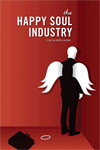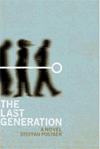In honor of Chicago Cubs first World Series since 1945, a discussion of the brand’s “success” despite sucking.
October 29, 2016

The paradoxical Chicago Cubs. The brand succeeds even when team doesn’t.
Can “sucking” be a brand virtue? The notion seems counter-intuitive but I wonder if in some cases sucking might actually benefit a brand.
I should define sucking. For the purpose of this discussion, I mean the act not being good. For example, I suck at golf. I can’t even hit a ball off the tee. Thankfully, this fact does not harm me in any particular way. I am not expected to be good at golf. God’s plan for me does not include acumen for the game. If I were an account executive, one could argue my lack of golfing skills impedes my ability to cultivate important client relationships. True or false, the point is a moot one. Assuming people can be considered brands, mine is not affected one way or another by sucking at golf.
Herein lies the critical distinction for my argument. In order for sucking to be considered a legitimate brand virtue, the brand –be it person, place or thing- needs first to first be something ordinarily expected to be good but for some reason… isn’t.
Take the Chicago Cubs. Please. Here is a major league team that has not won a World Series since 1910. The last time they appeared in one was during World War II. Frankly, the Cubs seldom make it to the post season and when they do they don’t stick around very long. By most criteria, The Cubs suck. So much so they are often referred to as “Lovable Losers.”
Lovable? Well, for one thing they regularly sell out beloved Wrigley Field, no matter what their record. WGN consistently scores huge ratings for Cub’s games, despite their record. Interestingly, WGN delivers a national audience for the Cubs, sustaining and creating fans all over the country. People love the Chicago Cubs even though they suck. Why? Fans typically point out the venerable, old ballpark as a reason. The fact that the Cubs play in the heart of one of Chicago’s most pleasant and fun-filled neighborhoods, Lakeview attracts executives, pretty girls, tourists and gay people –people who ordinarily wouldn’t go to games. The Cubs are transcendent.
 “The Cubs are hot!”
“The Cubs are hot!”
But one hundred years of sucking? I can’t think of any other brand that could survive under these terms, let alone thrive.
Just look at Chicago’s other professional baseball team, the White Sox. They are held to an entirely different standard. When they suck attendance drops, ratings flag, and everyone but the diehards lose interest. Like any other team in professional sports, winning is mandatory. As the White Sox’ new slogan suggests: It’s Black & White.
If the Chicago Cubs suddenly became a great baseball team what would happen to the brand? The hysteria would be off the chart. Fans would go bonkers. But then what? The Cub’s would be held to a new standard, wouldn’t they? Folks might not tolerate sucking anymore. For the first time in a long time, The Chicago Cubs would be taken seriously. And if they started sucking again, they might not be taken at all. At least not like before. Therefore, sucking can be viewed as a brand virtue for the Cubs. The brand scores precisely because the team does not. Truly a paradox, I can’t think of any brand on earth with such a hall pass. Can you?
Author’s Note: First draft of this essay was written in 2010. The Cub’s were in 4th place in their division, going nowhere. Growing up 5 blocks from Wrigley, I could not be happier for their current success. #flytheW
![]()
Fan loyalty no longer a ‘gimmie.’
ESPN’s John Kincade was on the radio the other day talking NBA Finals. The Lakers had not yet been eliminated; they would be soon in an embarrassing blowout. And Boston had lost their first two games before taking a must-win at home. Kincade was asked if we were witnessing the end of an era. With big (and aging) stars like Kobe Bryant (LA) and Kevin Garnett (Boston), these two teams once dominated their conferences and the league, winning it all the last few years.
Upstart younger teams such as Memphis, Oklahoma City and the Chicago Bulls are now the talk of the NBA. Not withstanding Chicago, these new teams are from small markets. Memphis vs. Oklahoma City sounds more like a country feud than a playoff basketball game.
Kincade was asked if he’d still watch NBA games without perennial powerhouses like LA and Boston. I found his answer interesting as well as relevant to topics covered on this blog. Kincade said he absolutely enjoys following small-market teams. He added that he regularly makes “appointments” to watch teams who are playing good ball, regardless of geography. For that matter, he added, more and more other fans are doing so as well.
Jumping ahead, is it possible new fans are no longer being born into specific allegiances? Instead of growing up a “die hard” fan of the home team, now they could and would choose teams based on far more personal criteria, like a player’s Twitter feed or an athlete’s personal style on and off the court. With countless different ways to be a spectator, and even more ways to interact with teams and the media, fans need no longer feel chained by geography. Fandom is becoming random.
A game changer for games? Well, if fans pick whom they want to root for regardless of geography, sports teams will have to rethink how they cultivate and maintain a fan base. They will no longer be able to count on die-hards for selling tickets and other revenues. Gone is being a Cubs fan no matter what or bleeding Boston Red. If I’m right, the implications for teams in all sports is staggering. And I’m almost positive it makes marketing and social media as important as winning…if they aren’t already.
Ironically, almost a year ago today, I wrote a piece about Chicago’s lovable losers, the Cubs. I wrote that the Cubs brand transcends its reputation for losing, suggesting that losing might even help them in a vaguely masochistic way. Historically, the Cubs have always benefited from being televised on WGN, which is broadcast all over the place. They also have an ace in their deck, called Wrigley Field. But can the brand thrive in the 21st century? The many empty seats early in the season suggest otherwise. People are blaming the generally miserable Chicago weather. But that never stopped the Cubs’ faithful before. Accustomed to Facebook and Twitter, maybe the new generation simply refuses to follow a bunch of losers.



 The Happy Soul Industry
The Happy Soul Industry The Last Generation
The Last Generation